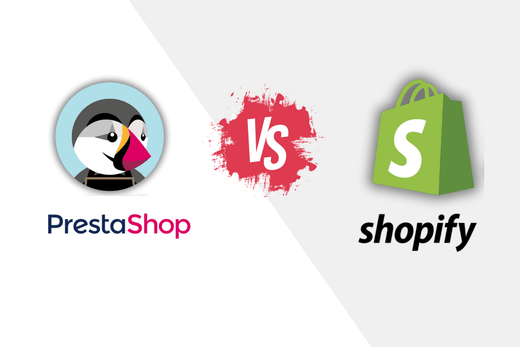In the digital age, having an online store has become essential for many businesses. E-commerce not only expands the reach of a business but also provides a platform for entrepreneurs to sell their products globally. This is where Shopify, one of the most popular and versatile e-commerce platforms, comes into play.
Shopify is a globally recognized e-commerce platform that enables entrepreneurs and marketers to efficiently build and manage online stores. It offers a complete solution that suits businesses of all sizes, from small businesses to large corporations. Its services cover everything from website creation to inventory management and integration with various sales channels.
In this article, we explore the history of Shopify, how it works, go into depth about its key features, and how they can benefit your business.
History and origins of Shopify
Shopify was founded in 2006 by Tobias Lütke, Daniel Weinand, and Scott Lake. They created the company after facing challenges in opening an online snowboard store due to the complicated tools available at the time.
They decided to create their own solution, which turned out to be much more accessible and easy to use. Based in Ottawa, Canada, Shopify has grown significantly and is now one of the most popular online shopping platforms in the world. Today, Shopify powers millions of businesses in over 175 countries.
How does Shopify work?
Shopify stands out for its ease of use and versatility, allowing users to create and manage their own ecommerce sites without the need for advanced technical knowledge. With an intuitive interface and a wide range of customizable templates, even beginners can design a professional and attractive store.
Plus, its ability to integrate with multiple tools and apps makes it adaptable to the specific needs of every business, whether small or large. From inventory management to secure payment processing and search engine optimization, Shopify provides all the functionality needed to run an online business efficiently and effectively.
Initial setup and customization
When signing up for Shopify, users select a design template that matches their brand identity and customize it using visual editing tools.
Additionally, for the more technically inclined, Shopify allows for deeper customization through Liquid and JavaScript, offering flexibility for those who want full control over the design of their site.
Product and operations management
From the dashboard, users can add products, configure inventory, and set prices. Shopify makes it easy to manage a wide range of products, including physical items, digital items, and services. Additionally, the platform streamlines ordering and shipping operations, integrating with major logistics providers to automate these processes.
Payment processing and security
Shopify provides a secure, integrated payment system that supports a wide variety of payment methods and currencies. The platform ensures the protection of transactions and customer information by complying with PCI DSS security standards.

Marketing and SEO tools
Don't listen to the myths! Shopify is designed to be easy to find on the internet. It has tools that make SEO easier. And recently, they've developed some basic integrations that directly affect SEO.
On the other hand, it also has marketing features to make effective promotions, such as discounts and advertising on social networks.
At Kansei, as a Shopify SEO agency , we can advise you on how to get your ecommerce to the top positions on Google.
Shopify Features and Benefits
Ease of use
One of the main reasons why Shopify is so popular is its ease of use. The platform offers an intuitive and user-friendly interface that makes it easy to set up and manage. From creating pages to managing inventory, Shopify is designed to be accessible even to those without technical experience.
Personalization and Themes
Shopify offers a wide variety of themes that allow users to customize the look and feel of their stores. These themes are designed to adapt to all mobile and desktop devices.
Additionally, customizations can be made without any programming knowledge, users can use Shopify's drag-and-drop editor.
Product Management
Product management in Shopify is simple and efficient. Users can add products, organize inventory, and manage product variants with ease.
These variant options are really useful for sellers, as they can offer different sizes, colors, and attributes from a single product page.
Payment Gateways
The platform supports a wide variety of payment gateways, allowing sellers to accept payments in a variety of ways, including credit cards, PayPal, and other options.
It is also important to know that Shopify also provides its own payment gateway, Shopify Payments, which facilitates the payment process and reduces transaction fees.
Safety Features
Security is a top priority for Shopify. The platform includes SSL certificates to secure transactions and protect customer information. Additionally, Shopify complies with PCI DSS security standards, ensuring that payment data is handled securely.
Applications and Extensions
Shopify’s app store, the Shopify App Store, offers thousands of apps and extensions that allow users to add new functionality to their stores. From marketing tools to integrations with accounting systems, Shopify apps can customize and improve user experience and operational efficiency.
Mobile Optimization
In a world where most online shopping is done on mobile devices, Shopify makes sure that all of its stores are fully responsive . This means that stores look and work perfectly on mobile phones and tablets, providing a smooth and enjoyable user experience.

Shipping Features
Shopify simplifies the shipping process by offering automatically calculated shipping rates and integration with courier services like UPS, FedEx, and DHL.
However, sellers can set custom shipping rates and offer free shipping options to increase conversions.
Customer Service
Customer support is one of Shopify’s strengths. The platform offers 24/7 assistance via live chat, email, and phone. Additionally, users have access to a wide range of resources, including tutorials, community forums, and a comprehensive knowledge base.
Analytics and Reports
Shopify provides analytics and reporting tools that allow merchants to monitor the performance of their stores. From sales and traffic reports to customer behavior analysis, these tools provide valuable insights to make informed decisions and improve business strategy.
Scalability
One of the great things about Shopify is its ability to grow with your business. The platform offers several pricing plans to suit the needs of different business sizes.
From small online stores to large enterprises, Shopify can scale and provide the functionality you need as your business grows.
Conclusions
In short, we can say that Shopify was created with the main purpose of simplifying the creation and management of online stores. Thanks to the diversity of tools and functionalities it offers, we are sure that it is the right choice for your ecommerce.
Need more information on how we can help you build your online business on this leading platform? Contact us!




